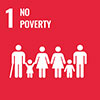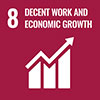The citizen value of the enterprise
The confluence of different factors is creating a closer approach of enterprises to society. On the one hand, the business’s need to establish permanent channels with consumers requires companies to become open systems and, with that, the assumption of civic obligations towards society. On the other hand, the Earth’s crazy situation is generating a general danger alarm that urgently appeals to social agents’ collaboration and commitment, especially productive organizations.
To achieve this, powerful approaches such as social responsibility and sustainability are being implemented, created to generate a productive transition that is beneficial for everyone, society, companies and the environment. The action plan is already in place, with a pact approved by the UN General Assembly (2030 Agenda), with a consistent business governance pattern (ESG) and with realistic objectives (SDGs). This orderly and firm tour allows us to match the conservation of the planet, with the quality of life and social well-being of its people.
As States point out in the resolution of the 2030 Agenda, “we are determined to end poverty and hunger around the world by 2030, to combat inequalities within and among countries, to build peaceful, fair and inclusive societies, to protect human rights and promote gender equality and the empowerment of women and girls, and to ensure a lasting protection of the planet and its natural resources”.
The main objective is to implement a new sustainable society that solves the serious problems that industrial society has brought us to. A fair and supportive community society that considers the health and concordance of humanity and its living environment. Ultimately, a society that uses freedom for people’s growth, equality to recognize each other as peers, and fraternity to care for each other.
ODS



 Enrique Campomanes Calleja
Enrique Campomanes CallejaExpert in coaching (COACHSI, 2013) and training of trainers in Corporate Social Responsibility (University of Buenos Aires, REDUNIRSE and PNUD). University specialist in Science, Technology and Society (UNED, 1999). Doctor of History (University of Oviedo, 1995); research sufficiency in Business Administration (University of Oviedo, 1989). Bachelor of Science in Mathematics (Complutense University of Madrid, 1976). He is a managing partner at INDAE, Inmark and Makeateam. Partner-consultant and trainer at Talento Ético. Adjunct professor of Sustainability and Social Responsibility Management master at Universitat Oberta de Catalunya (UOC, since 2014); tutor at the Human Resources master at EAE Business School (since 2012); professor of Professional Ethics and Deontology at Colegio Universitario de Estudios Financieros (CUNEF, 2012-2018); Type 3 adjunct professor in the area of Business Organization (University of Oviedo, 1987-2008). He has published “La intrahistoria del Grupo de Responsables de Formación de Entidades Financieras (GREF)” in the book 35 años del GREF (Indae Editorial, 2008), the book Ética empresarial: Ideas, reflexiones y casos (Editorial Ramón Areces, 2013) and he is working on a new publication on “Los valores de la nueva empresa: Cultura, talento y compromiso social.” He has published more than a hundred articles, among others, in the journals Capital Humano and Observatorio de RRHH on topics related to ethics, human resources and enterprises.



